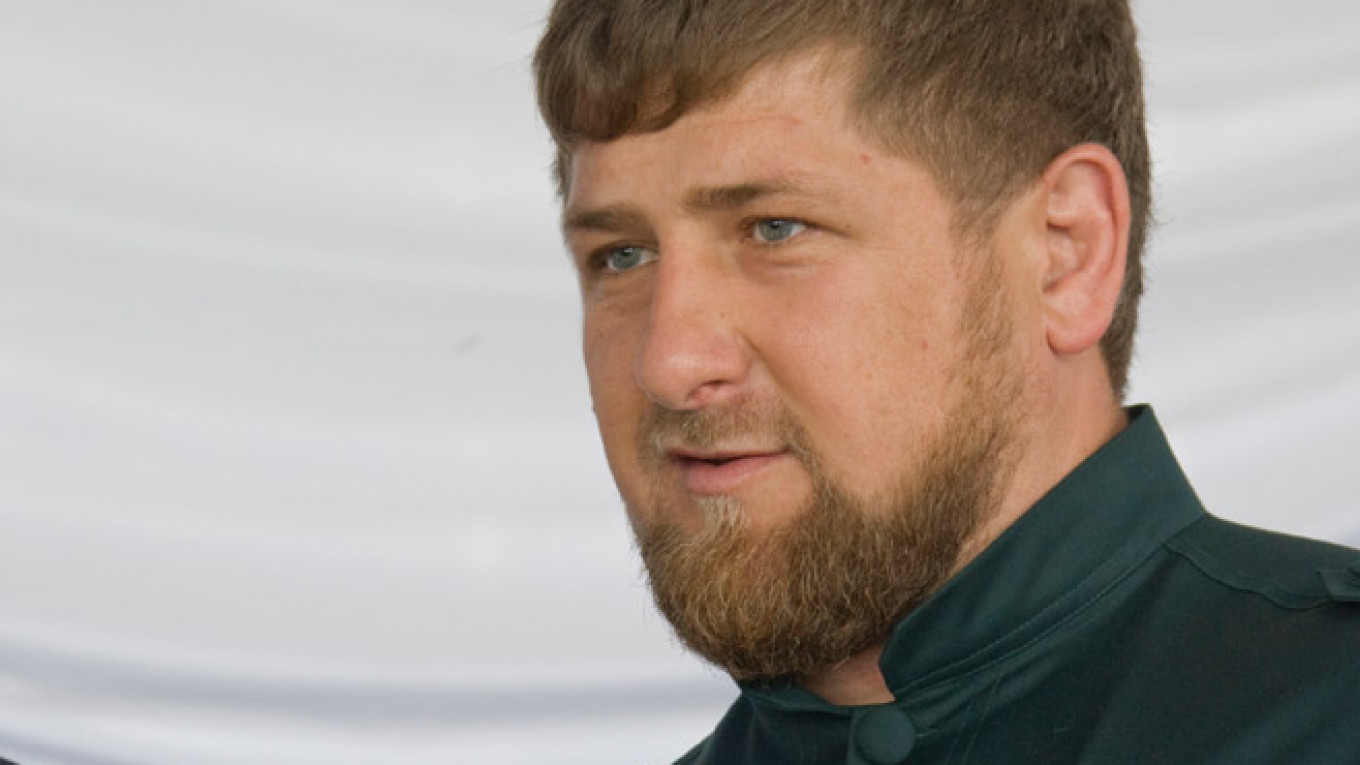MOSCOW — Russia' Investigative Committee said Saturday it would investigate the fatal shooting of a Chechen that has highlighted tensions between central police authorities and Ramzan Kadyrov, the hardline Chechen regional leader brought in by President Vladimir Putin to quell separatism.
Police from the neighboring Stavropol region shot a man dead in the Chechen capital Grozny last Sunday, infuriating Kadyrov, who urged his own police to "open fire" if officers from outside Chechnya acted there without permission. Russia's Interior Ministry responded by calling his comments "unacceptable."
The ministry said the man had been on the run after a shooting incident.
Kadyrov professes loyalty to Putin but enjoys a large degree of autonomy to run his mainly Muslim region. The former amateur boxer has ruled Chechnya since 2007, bringing relative peace to a region racked by two separatist wars, but drawing strong criticism from human rights groups because of his heavy-handed methods and allegations of involvement in kidnappings and murder.
In a potential headache for Putin as he tries to balance rival factions in his power structure, resentment against Kadyrov also appears to be building up among top law enforcement officials in Moscow — and vice versa — as a result of turf wars over their respective authorities.
Underlying all this are Moscow's attempts to restore stability throughout the North Caucasus region, where Islamist militants have been operating.
On Saturday, Russia's Investigative Committee, the top investigative body, issued a statement saying it would carry out a "procedural check" into the shooting incident. Russia's chief investigator, Alexander Bastrykin, had earlier canceled a local criminal investigation into the death.
"The people of the Chechen republic are asking why the probe was canceled, if it was based on suspicions of deliberate killing," Kadyrov said on his Instagram account.
Tensions first surfaced after the Moscow shooting in February of leading opposition politician Boris Nemtsov, which has provoked a tangle of conflicting accounts and conspiracy theories, often involving Chechnya.
Police have charged Zaur Dadayev, a former commander in Kadyrov's police, with Nemtsov's murder. Following the suspect's arrest in neighboring Ingushetia, Kadyrov called Dadayev a "true Russian patriot" in his Instagram account. Some observers have said that the arrest of a Chechen with links to Kadyrov illustrates how, in the eyes of federal law enforcers, Kadyrov has overstepped the mark.
Russian media have reported incidents of police in Moscow having run-ins with Chechens, then coming under pressure not to prosecute them because of their ties to Kadyrov.
Despite the high-profile nature of the Nemtsov case, investigators have reportedly been unable to question another suspect in the murder, Ruslan Geremeyev, because he is hiding in Chechnya, guarded by Kadyrov's troops.
Geremeyev, another deputy head of the same Sever police battalion to which Dadayev belonged, is related to Suleiman Geremeyev, a member of the Federation Council, the upper chamber of the Russian parliament.
Last week, Vadim Prokhorov, the Nemtsov family's lawyer, complained that investigators' work on the case was progressing but being hampered on Chechen territory.
Material from The Moscow Times was included in this report.
A Message from The Moscow Times:
Dear readers,
We are facing unprecedented challenges. Russia's Prosecutor General's Office has designated The Moscow Times as an "undesirable" organization, criminalizing our work and putting our staff at risk of prosecution. This follows our earlier unjust labeling as a "foreign agent."
These actions are direct attempts to silence independent journalism in Russia. The authorities claim our work "discredits the decisions of the Russian leadership." We see things differently: we strive to provide accurate, unbiased reporting on Russia.
We, the journalists of The Moscow Times, refuse to be silenced. But to continue our work, we need your help.
Your support, no matter how small, makes a world of difference. If you can, please support us monthly starting from just $2. It's quick to set up, and every contribution makes a significant impact.
By supporting The Moscow Times, you're defending open, independent journalism in the face of repression. Thank you for standing with us.
Remind me later.






